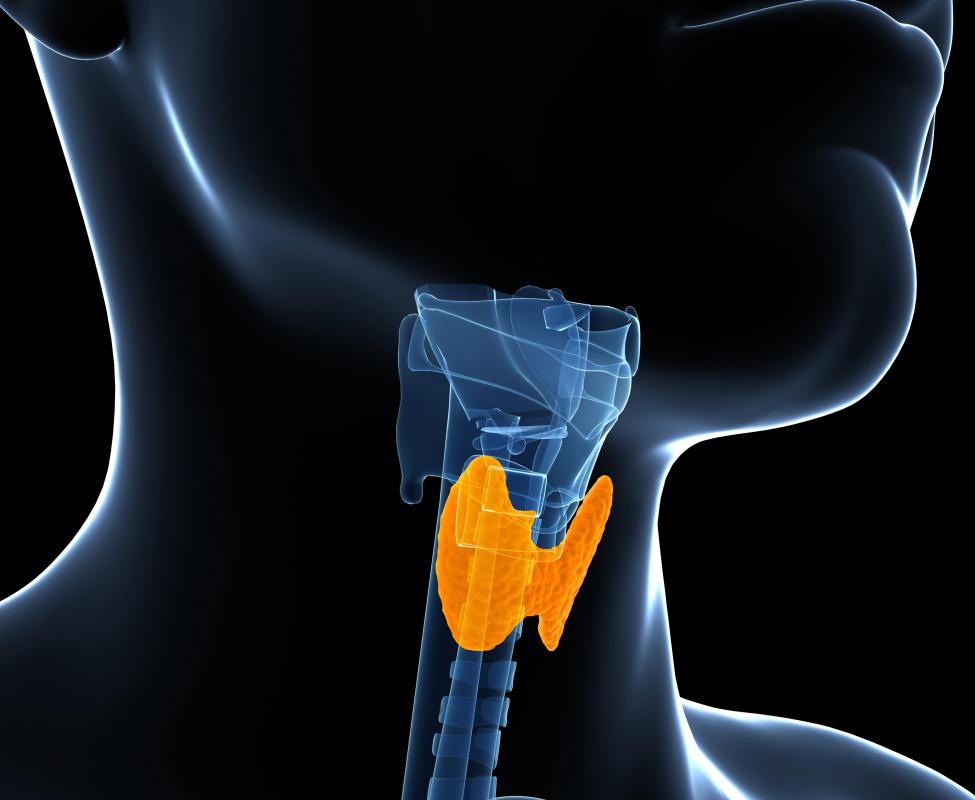At TheHealthBoard, we're committed to delivering accurate, trustworthy information. Our expert-authored content is rigorously fact-checked and sourced from credible authorities. Discover how we uphold the highest standards in providing you with reliable knowledge.
What Is the Role of Negative Feedback in the Endocrine System?
The endocrine system governs important bodily functions, such as temperature and metabolism, by controlling the body's production of hormones. These hormones are secreted into the blood by the endocrine organs, such as the pituitary, thyroid and adrenal glands, before traveling to their target tissues. What is known as negative feedback regulates the amounts of hormones available by detecting when blood levels rise above a threshold and inhibiting hormone production. This prevents hormone levels in the blood from continuing to rise, which could result in illness.
Although positive feedback does occur, negative feedback in the endocrine system is much more common. The negative feedback process is sometimes compared to a house heating system, where temperatures above a certain level are detected by a thermostat. This switches off the heating until the temperature falls below a minimum threshold, when the heating switches on again. Negative feedback leads to hormone production switching on and off, creating pulses of hormone secretion. This means that blood hormone levels rise and fall cyclically, within a relatively narrow normal range.

An example of negative feedback in the endocrine system can be seen in the regulation of thyroid hormones. It starts with the brain's hypothalamus, which produces thyroid releasing hormone (TRH). This hormone moves to the nearby pituitary gland, causing production of thyroid stimulating hormone (TSH), which is then released into the blood stream. On reaching the thyroid, TSH stimulates the cells there to now secrete thyroid hormones. These are important hormones that affect the physiology of practically all of the body's cells.

When the level of thyroid hormones in the blood reaches an upper threshold, the cells in the hypothalamus that make and secrete TRH are affected. The result is that TRH, then TSH, and finally thyroid hormone levels fall. Once the level of thyroid hormones in the blood falls below a lower threshold point, negative feedback ends. This means that TRH is produced by the hypothalamus again, leading to renewed TSH secretion and thyroid hormone synthesis and release.

The hormone production of many endocrine glands is associated with control by negative feedback. In addition to feedback loops, other factors can affect hormone secretion. One example of this is the increase in TRH secretion seen in a young child who is in a cold environment. This mechanism is thought to result from the ability of thyroid hormones to regulate body temperature.
AS FEATURED ON:
AS FEATURED ON:














Discussion Comments
This is very interesting. So basically, the endocrine systems produces hormones until it has produced a little bit too much. Then, the endocrine system stops producing hormones until there aren't enough hormones in the system.
I think this is actually a really odd way for anything to function. Why wouldn't the body just produce a steady amount of hormones? It seems like that would make more sense instead of starting and stopping all the time!
Here's a fun fact I learned when I took anatomy and physiology: most processes in the body are based on negative feedback. Childbirth is a notable exception because it is based on negative feedback. But other than that, I can't think of any body processes that are based on positive feedback (when they're taking place normally, anyway.)
Also, I have to say I think the analogy made in the article about negative feedback being similar to the way a thermostat works is great. I wish I had heard of that example when I was actually taking anatomy and physiology!
Post your comments